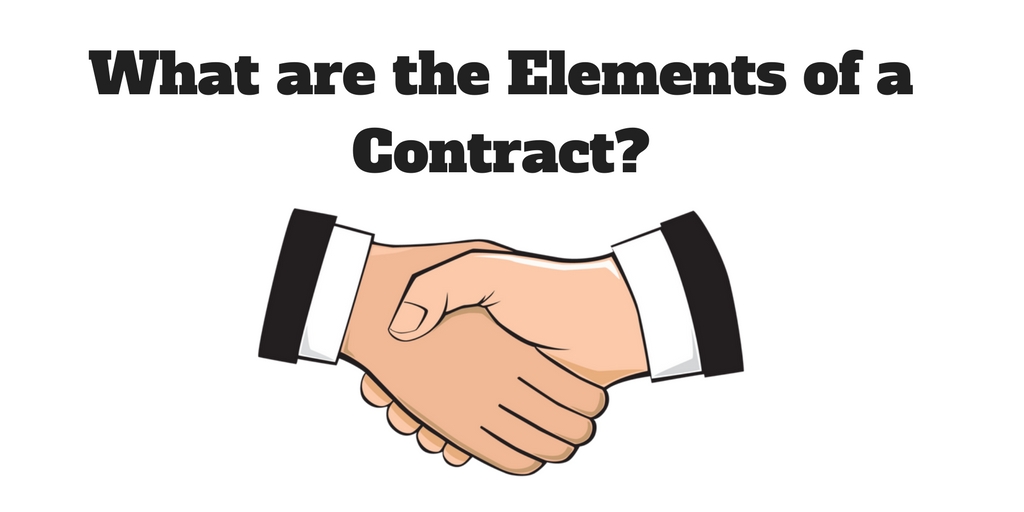Many people enter into contracts on a daily basis without realizing that they are in a legally binding agreement. To help the average person understand when they have a valid contract, we have set forth the elements of a contract below.
There are four elements of a contract, in order to have a valid contract, all four must be present:
1. Offer
This is the first step towards a contract. One party makes an offer to perform a service, sell a product, trade, or conduct some other business venture. An offer is valid so long as it is serious (i.e. not said in jest), and has not been revoked by the offeror (i.e. “I hereby withdraw my offer”).
2.Acceptance
The party to whom the offer was made must now agree to the terms of the original offer. Any conditional acceptance or inclusion of additional terms is called a counter-offer. A counter-offer is in effect a rejection of the original offer, and it starts the contract formation process all over again. Just like for an offer, an acceptance must also be serious.
3.Consideration
Contracts are not binding unless something of value is exchanged. Consideration can be in the form of money, a promise to perform an act or refrain from acting, or it can be for some other item of value. The element of consideration is the whole purpose for entering into a contract. For the element of consideration, both parties must have some obligation under the contract; for example, one party pays and the other party performs.
4.Capacity
Each party must reasonably assume that the other party has both the legal right and the ability to fulfill their end of a contract. They must also be able to fully comprehend at the time of agreement what their obligations will be. For example, an intoxicated person (with some exceptions) or a minor (with some exceptions) lack the capacity to enter into an agreement because they do not fully understand the obligations that they are undertaking.
The elements of a contract set forth above are applicable for both oral and written contracts. However, certain types of contracts are required by law to be in written form.
Despite the technical legal enforceability of certain oral contracts, for practical purposes, parties should memorialize their contracts in writing. This will help avoid confusion, misunderstanding, and will aid with enforcement in the event of a breach. To determine whether or not your contract needs to be in writing, or if you need to draft a contract, you should consult with a knowledgeable contract attorney.
Having an experienced contract attorney help prepare your agreement is the best way to protect your interests. For more information, or to have your agreement drafted or reviewed, please contact our office for a free consultation.
Disclaimer: This blog is made available by Kloss, Stenger & LoTempio for educational purposes only. It is not intended to provide legal advice nor form any attorney client relationship between the reader and Kloss, Stenger & LoTempio. You should always seek professional advice from a licensed attorney for any legal questions you may have.
